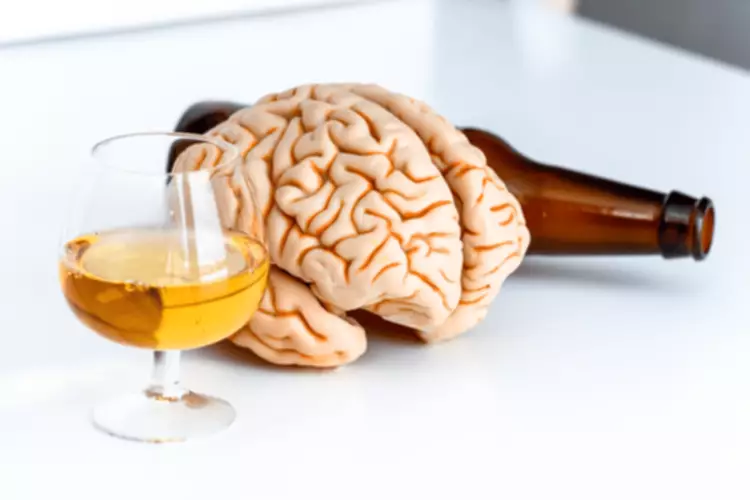Content
- Can You Quit Smoking Through Meditation?
- Meditation For Sobriety: Getting On The Road To Recovery From Addiction
- The Science Behind Mindfulness-Based Interventions
- Preventing relapse
- Learn Guided Meditation for Addiction Recovery at Gratitude Lodge
- Meditation and mindfulness for any mind, any mood, any goal
This technique isn’t normally covered in outpatient rehab programs. It is an effective way to deal with the burden of your old drug-related thoughts. In fact, philosophers meditation for addiction recovery have always known—and science has more recently confirmed—that there is tremendous value in allowing ourselves to step away from the busyness of daily life and simply be.
Whether a person is detoxing or well into recovery, meditation for addiction has endless benefits. The Hardest Part is Starting
Knowing that these mental benefits take time and patience can make mindfulness feel like a task, but dwelling on that will simply make the entire process less successful. The hardest part about meditation is choosing to set aside some time to work on yourself simply for the process, and not because of the reward. It Will Not Be a Waste of Time
Even if after finishing a thirty minute meditation video, you do not feel more self-aware or in control of your addiction, the time spent listening to the guide was not a waste. Taking thirty minutes out of your day to deeply breathe, check in with yourself, and relax is extremely valuable to your physical health–even if you do not feel immediate emotional improvement, your body will be grateful.
Can You Quit Smoking Through Meditation?
Even if you do not feel immediate emotional healing, your body will be thankful. Even if you have failed previously, relapsed, or are in a difficult crisis, we stand ready to support you. Our trusted behavioral health specialists will not give up on you. Call us when you feel ready or want someone to speak to about therapy alternatives to change your life.
Meditation can effectively help sufferers overcome such self-destructing impulses by training the brain to objectively observe them come and go rather than try and suppress or ignore them. One symptom for people suffering from addiction is an overwhelming urge to satisfy a craving when it strikes. Our guide can help you get started on meditation but there are dozens of high-quality resources to learn more.
Meditation For Sobriety: Getting On The Road To Recovery From Addiction
Even in cases of prolonged substance abuse and addiction, the brain has a powerful ability to adapt and repair the damage it causes. Through a process called neuroplasticity, the brain builds new neuron cells and creates neural pathways, allowing it to grow, modify and restructure itself. This activity is enhanced in recovering addicts who practice regular meditation. When you first quit drugs or alcohol, you need all possible tools to help your recovery. There are several drug and alcohol treatment methods that most people know about it including counseling, drug detox, and 12-step meetings but lately, a more ancient tool is being used – meditation.

Whether you are in the early stages of recovery or have been sober for a significant period, incorporating meditation into your daily routine can provide numerous benefits and aid in long-term healing. Addiction to drugs or alcohol can lead to unhealthy and negative thoughts. While in recovery, these thoughts can be dangerous and lead to relapse. Mindfulness in recovery allows these thoughts to be acknowledged without judgment and released without causing harm.
The Science Behind Mindfulness-Based Interventions
While meditation alone cannot replace comprehensive addiction treatment, it can serve as a complementary practice that enhances the effectiveness of traditional therapies and supports long-term sobriety. Another benefit of meditation for addiction recovery is altering brainwaves to improve mental health. Also, practicing mindfulness that improves the performance of the frontal https://ecosoberhouse.com/ cortex, which is responsible for thinking and planning. Many alcohol and drug addiction treatment programs have included meditation in their overall treatment plan. Instead, it provides powerful additional support for addicts in recovery. Part of the value of meditation is that those in treatment can practice it even after the initial recovery period is complete.
- Meditation has a positive influence on the neurotransmitters and neurohormones responsible for regulating health and well-being, both during meditation and after.
- Prospective patients can discover the different types of treatments that can help them thrive in wellness.
- Family members and friends often find themselves struggling with a loved one who is suffering from substance abuse disorder.
For those who have this debilitating disorder, anxiety episodes recur regularly, can feel uncontrollable, and sometimes evolve into panic attacks within minutes. Meditation is characterized by a crossed-legged seated posture, called the lotus pose, accompanied by deep, slow breathing. Similar to yoga, meditation can help reduce feelings of depression, anxiety, and emotional triggers, while changing brainwaves. There are also several methods that offer slightly different benefits. One study of alcohol- and cocaine-dependent individuals found that meditation decreases anxiety and drug cravings during stress, while allowing meditators to remain fully engaged with their experiences (Drummond, Glautier, 1994).
No matter how hard they try, they feel that they relapse without even really realizing it. Another benefit of meditation is that it can also help you connect with your spiritual side. Some people find that spirituality is an essential ingredient in the recovery process. Meditation is a practice that encourages focused attention and a heightened state of awareness. This is also a technique that can change your state of consciousness.
How long does it take for meditation to heal the brain?
Studies point to 8-weeks of meditation practice to see results. One study found improvements to memory, emotional regulation, and mood with 8 weeks of 13 minutes of meditation a day. But there isn't a magic number.
You can practice in your own home or in a peaceful place outdoors, such as near a lake, or in a garden, park, or forest. Choose an activity you like doing such as walking, tai chi, or yoga. Pay attention to all of the information your senses are receiving from the environment such as the sounds of birds, the crashing of waves, or the smell of flowers. This type of meditation is usually practiced in a peaceful, quiet setting while sitting in a comfortable position.
Can Meditation Help You Beat Addiction?
Get professional help from an online addiction and mental health counselor from BetterHelp. Transcendental meditation allows you to transcend above their current state by repeating a unique phrase or mantra. Often, a meditation instructor selects a mantra to allow you to achieve mindfulness and spiritual experience. Meditation disrupts the patterns of motivational toxicity found in addiction in which the ability of normal rewards to govern behavior has deteriorated.

A study by Molecular Psychiatry indicated the low levels of dopamine once someone abusing drugs experience when “crashing,” contrasting it with a John F. Kennedy study. The John F. Kennedy study revealed a 65% boost in the minds of participants during meditation. Any co-occurring or undiscovered motivations for substance abuse, such as filling a void, thinking the worst-case scenario, or feeling anxious can improve with meditation. Yogic asanas involve a combination of physical exercise and relaxation that can benefit individuals in addiction treatment and recovery.
Leave a Reply